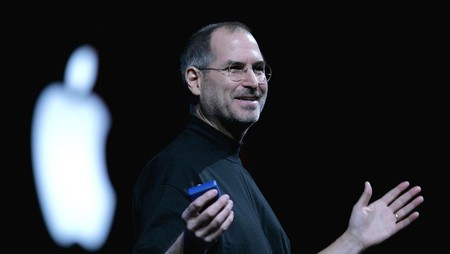The Bold Vision of Steve Jobs: From iPhone to Digital Domination
When Steve Jobs unveiled the first iPhone in 2007, the world was still trying to figure out what smartphones could really do. At the time, most phones had physical keyboards, small screens, and clunky user interfaces. But Jobs had a vision that was bold and transformative: a sleek, intuitive device with a large touch screen that could seamlessly combine communication, entertainment, and productivity. This vision didn't just create a product, it sparked a digital revolution that still defines the smartphone landscape today.
 |
| Steve Jobs is The Master of Innovation |
The Birth of a New Era in Mobile Technology
Before the iPhone, companies like BlackBerry and Nokia dominated the mobile phone market. Their devices were practical, but lacked the seamless user experience that Apple would later prioritize. Steve Jobs took a different approach by combining cutting-edge hardware with revolutionary software Apple's iOS system that was designed to be user friendly and visually appealing.
The iPhone's capacitive touch screen eliminated the need for physical buttons, relying on gestures like swiping and tapping, something considered highly innovative at the time. This marked the death of physical keyboards and the rise of touchscreen technology across all mobile devices. By the end of 2007, Apple had sold 6.1 million iPhones, and competitors began scrambling to match Apple's vision.
App Store: Redefining Software Distribution
Perhaps one of the Jobs' boldest moves was the introduction of the App Store in 2008. While smartphones had applications before, no platform had successfully offered a central, curated location for developers to create, market, and sell apps directly to users. The App Store revolutionized software distribution, empowering independent developers to reach a global audience and encouraging a flood of innovation. By 2023, the App Store had facilitated over $1 trillion in sales and services globally, reshaping industries such as gaming, e-commerce, and social media.
This move also set the stage for Apple's recurring revenue model through services, now a significant part of their business. In Q2 2023, Apple's services sector, which includes the App Store, generated $20.91 billion in revenue, showcasing the long-term success of Jobs' vision.
From the iPhone to the Digital Ecosystem
While the iPhone was the centerpiece of Steve Jobs' vision, it wasn't just about creating a phone. Jobs was laying the foundation for a larger digital ecosystem. Devices like the iPad, Apple Watch, and MacBooks, along with services like iCloud and Apple Music, became integral components of this ecosystem, all designed to work seamlessly together.
The concept of "continuity," where users can transition from one Apple device to another without interruption, became a key differentiator for Apple in the tech space. This cross-device integration continues to lock customers into Apple's ecosystem. As of 2023, Apple boasted over 1.5 billion active devices globally, a direct reflection of the enduring success of this digital ecosystem.
 |
| The Introduction of the iPhone by Steve Jobs |
Disrupting Traditional Industries
Beyond the tech world, Jobs' vision with the iPhone and the ecosystem it built had a profound impact on industries like music, photography, gaming, and advertising. With iTunes and later Apple Music, Apple played a major role in transforming how we consume and pay for music. Likewise, the iPhone's advanced cameras changed photography forever, democratizing high-quality photography for everyone.
In gaming, the App Store facilitated the rise of mobile gaming as a legitimate industry. As of 2023, mobile gaming accounts for 57% of global gaming revenue, driven in large part of Apple's App Store. Advertising also saw a shift with the rise of smartphones. With billions of active users on their devices for hours each day, mobile advertising became a critical part of the marketing world, a trend that has only grown since the first iPhone.
The Legacy of Jobs' Vision
Steve Jobs' bold vision for the iPhone wasn't just about selling more phones; it was about changing how people interacted with the digital world. The iPhone created new industries, transformed old ones, and redefined the relationship between consumers and technology. While Jobs passed away in 2011, his vision of a connected, intuitive digital ecosystem lives on. In 2023, Apple's market capitalization topped $3 trillion, making it the most valuable company in the world-a testament of Jobs' foresight and the enduring power of his innovations.
Steve Jobs' legacy is more than just the iPhone-it's the digital ecosystem that has come to dominate the world of consumer technology. From reimagining what a phone could be to transforming industries through innovative platforms like the App Store, his bold vision continues to shape the digital landscape. In an era where tech giants dominate daily life, it's clear that Jobs' vision of simplicity, integration, and user-centered design has become the blueprint for digital domination.

Komentar
Posting Komentar